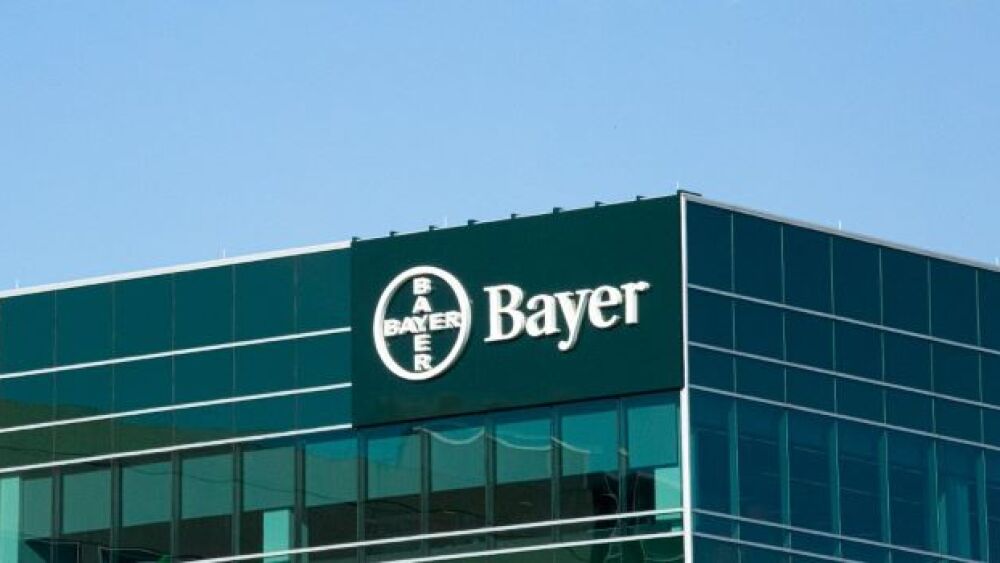While early, the Phase I study results for 12 patients represent a promising return on Bayer’s investment in BlueRock, which it launched with Versant Ventures in 2016 and fully acquired three years later.
Bayer logo on a building under blue sky/Getty Images, Kena Betancur/VIEWpress/Corbis
Bayer subsidiary BlueRock Therapeutics has taken another next step in its bid to bring a potentially curative therapy to Parkinson’s disease patients. Wednesday, the companies reported that bemdaneprocel, a stem cell therapy, was well tolerated with no major side effects in a Phase I study.
Topline data from the trial of 12 patients also showed feasibility of transplantation and evidence that the cells survived and engrafted in the brain after one year, satisfying the study’s secondary endpoints. Full data will be presented in August at the 2023 International Congress on Parkinson’s Disease and Movement Disorders in Copenhagen.
The therapy, also known as BRT-DA01, is the first to show positive results in a Phase I study for Parkinson’s, according to Bayer.
Bemdaneprocel consists of dopamine-producing neurons derived from pluripotent stem cells. In Parkinson’s disease, patients lose dopamine-producing cells. The current gold-standard treatment, Levodopa, seeks to make up for this deficit by increasing the amount of dopamine, which is required to control the abnormal movements characteristic of the disease.
It is not curative, however. Ostensibly, bemdaneprocel could be. According to Bayer, the stem cells, when transplanted, have the potential to reform neural networks that have been destroyed by Parkinson’s disease.
In a statement, Ahmed Enayetallah, senior vice president and head of development at BlueRock, called bemdaneprocel’s safety profile and early evidence of cell survival and engraftment “encouraging” and said they mark “a very important step in the development of a potential new therapy for patients with this disease.”
Christian Rommel, Bayer’s head of research and development, hailed the Phase I data as a win for BlueRock’s induced pluripotent stem cell (iPSC) platform and said it “warrants further investigation in larger groups of patients.”
Bayer and BlueRock plan to do just that, announcing Wednesday that plans are underway for a Phase II study, which is expected to begin enrolling patients in the first half of 2024.
While early, the Phase I data mark a positive return on investment for Bayer, which combined with Versant Ventures to launch BlueRock in 2016 with a $225 million Series A financing. Bayer went all in in 2019, fully acquiring the start-up, which is developing engineered cell therapies in neurology, cardiology and immunology.
At the time, Bayer board member and pharmaceutical head Stefan Oelrich said the acquisition marked “a major milestone on [the company’s] path towards a leading position in cell therapy.”
Heather McKenzie is a senior editor at BioSpace, focusing on neuroscience, oncology and gene therapy. You can reach her at heather.mckenzie@biospace.com. Follow her on LinkedIn and Twitter @chicat08.






